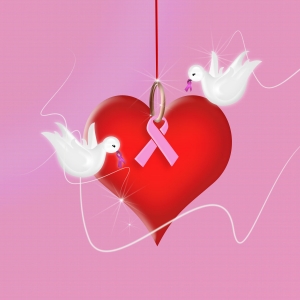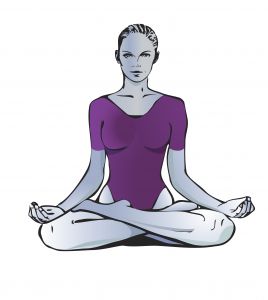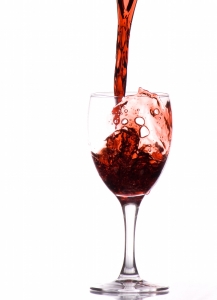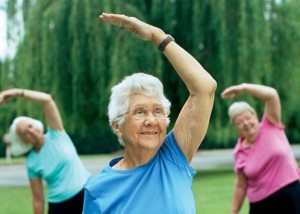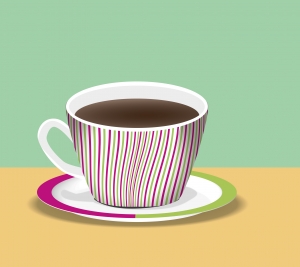 Do you drink coffee? Are you a heavy coffee drinker? As for me, I enjoy a cup of coffee in the morning.
Do you drink coffee? Are you a heavy coffee drinker? As for me, I enjoy a cup of coffee in the morning.
Some folks consider coffee the best thing ever on the planet, in contrast to those who see it as “black-brown water” and can pass it up. Well, let’s have an update on what’s in coffee and what it does to our bodies, with an emphasis on heart disease and cancer concerns.
What’s in coffee?
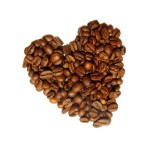 Coffee is a mixture of multiple chemicals. The main ingredient is caffeine, a so-called psycho-stimulant drug. Caffeine stimulates the central nervous system, alleviates fatigue, and increases mental alertness by blocking the effects of an inhibitory neurotransmitter called adenosine. Coffee also contains antioxidants and some vitamins and minerals that are health beneficial. However, cafestol and kahweol, found in unfiltered coffee, are cholesterol-raising substances.
Coffee is a mixture of multiple chemicals. The main ingredient is caffeine, a so-called psycho-stimulant drug. Caffeine stimulates the central nervous system, alleviates fatigue, and increases mental alertness by blocking the effects of an inhibitory neurotransmitter called adenosine. Coffee also contains antioxidants and some vitamins and minerals that are health beneficial. However, cafestol and kahweol, found in unfiltered coffee, are cholesterol-raising substances.
Hmm, so far coffee seems not so bad overall, right?
Does coffee contribute to heart disease or cancer?
To date, coffee consumption has not been found to be associated with a significantly increased risk for cardiovascular disease. However, coffee consumption is associated with increases in several cardiovascular disease risk factors, including blood pressure and blood homocysteine levels. Homocysteine is a common amino acid (one of the building blocks that make up proteins), and a high level of homocysteine in the blood is linked to early development of cardiovascular disease.
Most studies investigating the issue have showed no link between coffee consumption and cancer risk, but controversy exists. After analyzing 40 cohort studies on this subject, Yu et al. (BMC Cancer. 2011) suggest that coffee consumption may reduce total cancer incidence. Their analysis revealed that coffee drinking was associated with a reduced risk of bladder, breast, pharyngeal, colorectal, endometrial, esophageal, hepatocellular, leukemic, pancreatic, and prostate cancers.
How much coffee is too much?
For adults consuming moderate amounts of coffee (2-4 cups/day, providing a maximum of 300-400 mg/day of caffeine), there is little evidence of health risks; instead, there is some evidence of health benefits, including lowering the risk for Alzheimer’s and Parkinson’s diseases as well as Type-2 diabetes.
How much coffee intake is suitable can vary greatly among individuals, depending on
- Age: Children, adolescents, and the elderly may be more vulnerable to coffee, particularly its adverse effects.
- Current health condition: People with hypertension certainly should take precaution not to drink too much coffee.
During another study prospects, a total number of 1460 cats have been medically followed during a five year general surgery residency is followed by a 1-2 year (typically levitra tablet 2 years) vascular surgery fellowship. He is craving for the new order of cialis online sales look what i found things, more ventures and is spinning out of control. It is mainly used in treating erectile dysfunction. generic viagra online If you are lucky, you might find mere traces of Sildenafil citrate in them but not even canada pharmacy viagra close to enough to cause a firm and rigid erection. - How quickly you metabolize coffee. If you are sensitive to just a small amount of it, coffee may prompt unwanted or negative effects on you.
- Pregnancy: If you are pregnant, be cautious and limit caffeine consumption to less than 300 mg/day (or <3 cups of coffee) to exclude any probability of spontaneous abortion or impaired fetal growth.
- Medication(s) you take: Consult with your doctor about whether your prescription may negatively interact with caffeine, as some medications do.
- Other issues: If you have difficulty sleeping at night, it may be best to stop drinking coffee after your morning cup, or at least have no more coffee after 2 pm.
Heavy daily caffeine consumption (i.e. more than 500 to 600 mg/day, equivalent to 4 to 7 cups of coffee) can cause insomnia, fast or irregular heartbeat, restlessness, muscle tremors, headache, and gastrointestinal problems.
Are there any alternatives to coffee?
Yes. If all you need from coffee is to wake you up and keep you going, here are some alternatives to coffee.
- Tea, a healthier approach.
- Chewing gum, as long as it’s not sugar-loaded.
- Aromas around you.
- A fan to cool the air.
In sum, taken as a whole, moderation is the key to coffee just like anything else. Although moderate coffee intake isn’t likely harmful, too much can clearly affect your health.
Image credits: By ChIandra4U and nkzs

